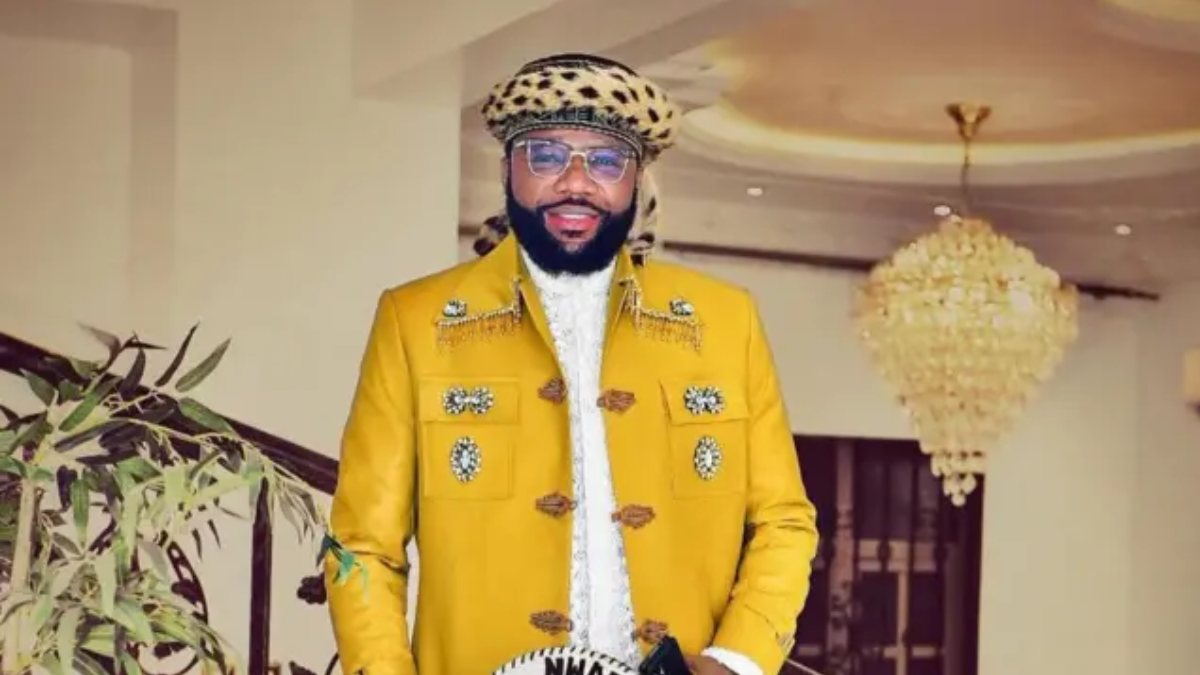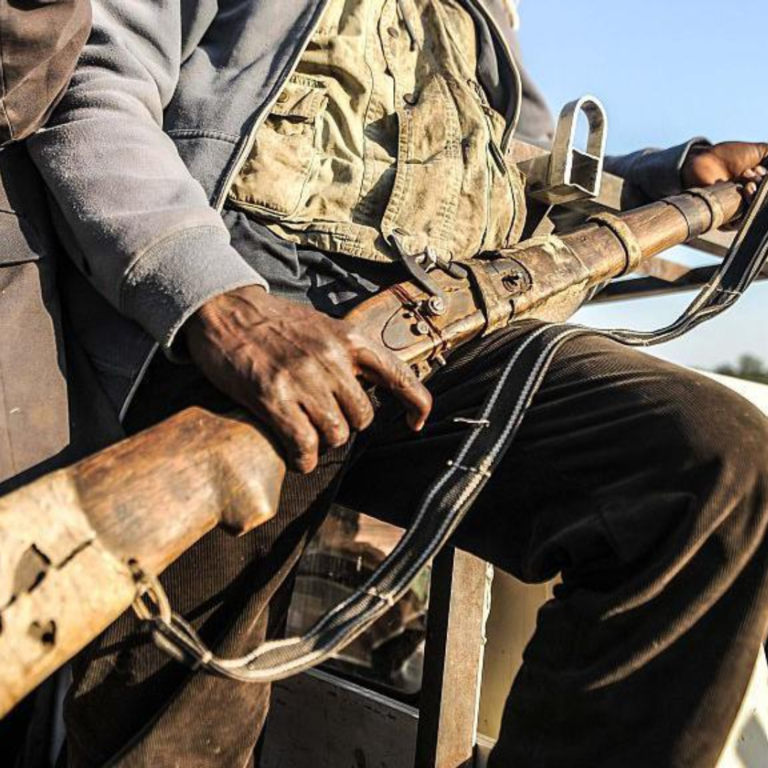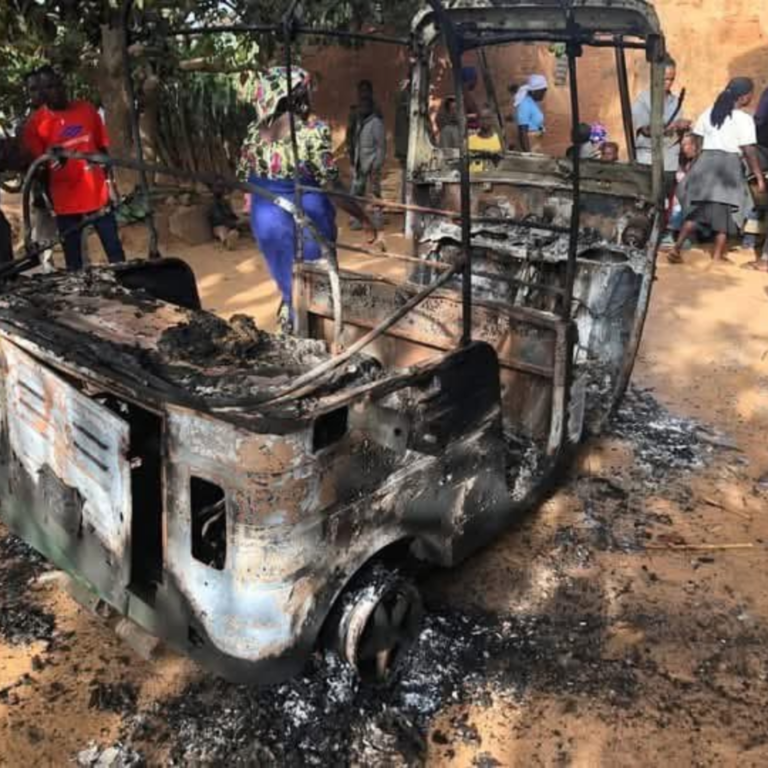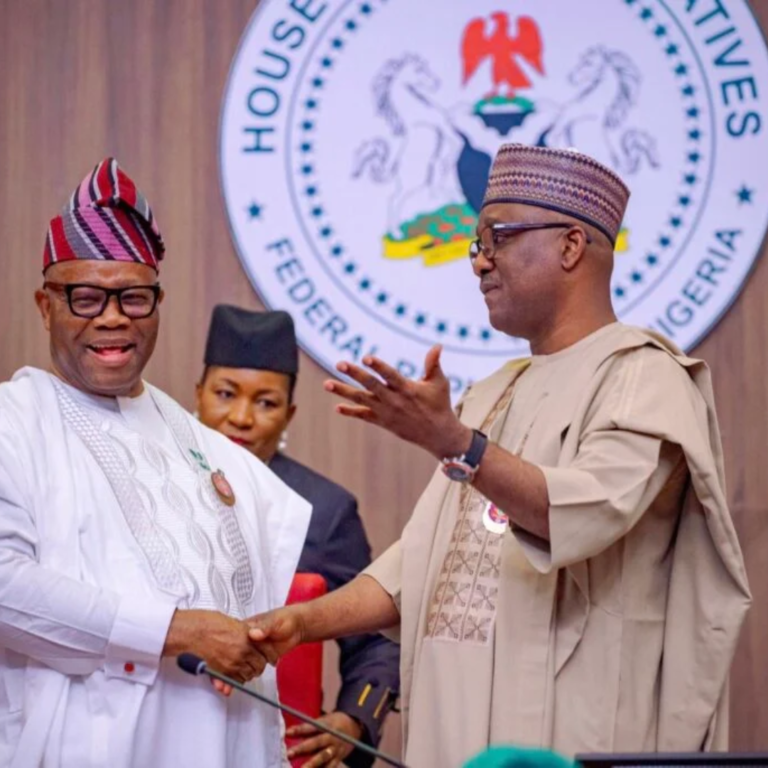The off-cycle election campaign in Edo State is upsetting for several reasons, but top of the list is the open display of Godfatherism. If you are wondering, political godfathers are known or unknown figures who help politicians get into power in exchange for different gains.
Of the 17 gubernatorial candidates listed with the Independent Electoral Commission (INEC), three major contenders have emerged: Monday Okpebholo of the All Progressive Congress (APC), Asue Ighodalo of the People’s Democratic Party (PDP), and Olumide Akpata of the Labour Party (LP). If the conduct of the politicians is anything to go by, there are actually only two strong contenders — former governor of Edo State, Adams Oshiomohle, and current governor Godwin Obaseki. From all indications, it would seem that Obaseki is the PDP candidate’s godfather and Oshiomole is the APC candidate’s godfather.
Even though both men won’t be on the ballot on Saturday, they’ve been in the news Almost as much as the candidates due to their unofficial role as godfathers.
“It is no longer strange and surprising that the Edo governorship election scheduled for September 21 has become a battle between former allies, Comrade Adam Oshiomhole, and his successor, Governor Godwin Obaseki,” says a Punch analysis.
This is worrisome.
To get a sense of why this matters, let’s take a look at previous cases of political godfatherism and its dangers in Nigeria’s history.
Times Nigerians have been the victims of political godfatherism
No matter the nature of the agreement between a godfather and his godson, it all comes down to two things: power sharing and resource control. Whatever the case the Nigerian populace always suffers severe consequences.
Nyesom Wike vs Sim Fubara
The most recent example was the power struggle between the FCT Minister, Nyesom Wike, and his political godson (and governor of Rivers State), Sim Fubara. Their fight led to talks of impeachments, a “coincidental” burning of the State House of Assembly, the bulldozing of the complex by the governor, and the subsequent allocation of ₦19.6 billion in taxpayers’ money for its reconstruction.
But others walked so Wike and the new generation of godfathers and godsons could run.
Rashidi Ladoja vs Lamidi Adedibu
Former governor of Oyo State (2003-2007), Rashidi Ladoja’s feud with his godfather, Lamidi Adedibu, saw citizens stabbed and shot in the cross-fire, with state properties being destroyed as father and son jostled for control.
In a later interview, Ladoja told Human Rights Watch (HRW) that the fight began when he refused Adedibu’s order to “turn over 25 percent of the government’s security vote—or roughly ₦15 million ($115,000) per month—directly to him.”
This was in addition to Adedibu deciding the commissioners in his cabinet. Ladoja’s godfather booted him out of office for a while, before Ladoja found eventual victory at the Supreme Court, putting Oyo state through a leadership crisis.
Chris Ngige vs Chris Uba
The most fitting illustration of how dangerous godfatherism is to Nigerian politics, economy, and democracy is the feud between the former governor of Anambra State and his godfather, Chris Uba.
In 2003, Uba bragged about being the first individual to “single-handedly put in position every politician in a state” and also having “the power to remove any of them who do not perform up to my expectations anytime I like,”
Uba had the former governor sign an agreement binding him to be loyal at all times and allowing him to run the government too. We found archived copies of four of such agreements.
We found archived copies of agreements between Ngige and his godfather. This image only shows one of them
Their fight began when Ubah’s demand to “nominate all political appointees, take the largest share of state allocations,” and be paid “the sum of ₦2.5 billion” as the cost of helping Ngige, clashed with the governor’s need to use the state’s money in doing actual work for the people.
To teach the governor a lesson, Ubah used his thugs (and the police) to kidnap him, then publicly confessed to helping him rig the elections, which ultimately led to the invalidation of his office and his removal by the Court of Appeal.
Other examples of godfather-godfather relationships gone sour (with citizens caught in the middle) include:
- Akinwumi Ambode of Lagos State vs President Tinubu
- Chimaroke Nnamani of Enugu State vs Jim Nwobodo
- Gboyega Oyetola of Osun State, vs godfather, Rauf Aregbesola.
- Alhaji Mohammed Lawal of Kwara State vs Olu Saraki.
- Mode Ali Sheriff of Borno vs Achalla, and many more.
Why is the Edo situation triggering?
If you haven’t made the connection yet, the common factor in every fight between political godfathers and godsons is the money belonging to the citizens. Godfathers always come like the Grim Reaper to collect what they feel is owed them, and their godsons (who happen to be in political offices) end up doing next to nothing for the people.
Another prime example of this phenomenon is the former governor of Anambra State, Chinwoke Mbadinuju,and his godfather, Emeka Offor. A 2013 study from the International Journal of Research in Arts and Social Sciences says the fight between them “got so pronounced that it crippled the machinery of governance in Anambra State, and the repercussion was a gross deficit of democratic dividends.”
In the buildup to the elections happening on Saturday, September 21, Obaseki and Oshiomohle of Edo State appeared to have been at each other’s necks, hustling to secure a win for their anointed candidates; are there expected rewards and loyalties? Will they be ‘duly’ paid? What will it cost the people?
History has proven that sons of political godfathers eventually resist their outrageous demands (which then starts a fight between them); While this is good news for the commonwealth of the people, history has also shown that in a majority of cases, not much gets done while they fight. Some young Nigerians on X have also expressed their fears
Expressing similar concerns for Edo, Channels TV asked Obaseki’s anointed candidate, PDP’s Asue Ighodalo how he intends to navigate the possibility of a controlling godfather and he said he will be serving the people of the state, not a godfather.
“Definitely, I will be a man of my own. Truly, I have been a man of my own since I was 18 years old. I was brought up by my parents to make my decisions by myself and I have gone through life having done several things,” he answered.
Young people stand to lose if godfatherism continues
We are not going on a limb to say this. In 2023, YIAGA Africa, a nonprofit organisation promoting democratic governance and civic engagement published research naming the “domineering influence of godfathers” as one of the major things keeping young people away from politics.
The research carried out in the Sokoto State to determine the level of youth political participation says over 72% of young people in the state have never contested for political office and among the reasons listed, there were three pulling the weight:
Education was on top of the list at 31%, finance at 28% and godfatherism followed at 19%.
“Of course, godfathers are a threat to youth political participation. I told you earlier that I wanted to contest but was told to wait for my turn,” Umar Aminu, an interviewee told Yiaga.
“The problem associated with youth participation in politics is being associated with godfatherism because even if you have the money as a youth those elites will not allow you to cross the line of becoming a party candidate for an election,” Naziru Ibrahim, another participant said during a focus group discussion.
In its conclusion, the study suggests “breaking the stronghold of godfathers of the political space and political parties” through steady reforms of the political ecosystem.




